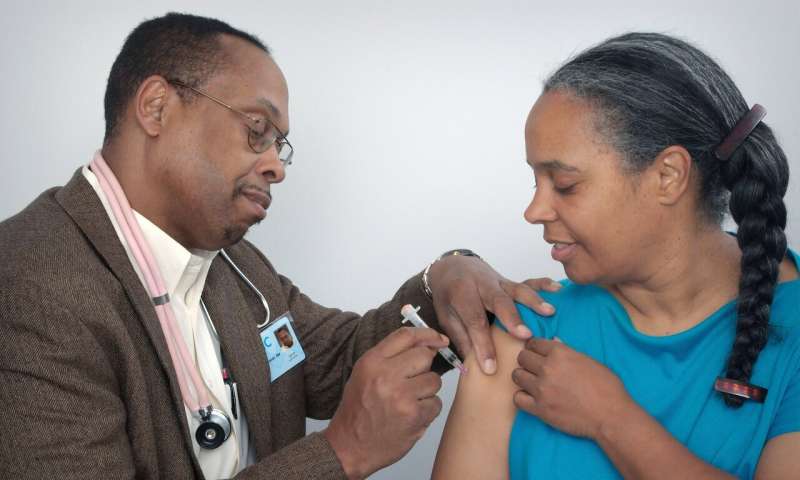
A group of vaccine experts led by Children’s Hospital of Philadelphia (CHOP) has published recommendations to ensure equitable distribution of a COVID-19 vaccine when it becomes available. The framework, published today in Heath Affairs, focuses on five principles the authors believe would strengthen the current immunization delivery system to ensure equitable access to everyone for whom vaccination is recommended.
“It is critical for the federal government to set policy and provide coordinated guidance and resources to states and localities for meaningful, rapid implementation of a vaccine strategy, so that areas may begin immunizing prioritized populations as soon as they receive vaccine doses,” said lead author Angela K. Shen, ScD, MPH, a visiting research scientist at CHOP’s Vaccine Education Center.
The paper outlines five main principles by which policymakers can implement an equitable COVID-19 vaccine distribution strategy:
1.Recruit diverse populations to participate in clinical trials for a COVID-19 vaccine to ensure the data reflect the racial, ethnic, age and gender diversity of the US.
2.Require transparency when it comes to reviewing safety and efficacy data, with approval discussions taking place in the public eye, particularly in the event of an Emergency Use Authorization.
3.Follow guidance from the Advisory Committee on Immunization Practices (ACIP) and the National Academy of Sciences, Engineering, and Medicine (NASEM) working groups as they identify priority groups and develop recommendations for vaccinating the civilian population.
4.Ensure access to vaccinations for all individuals, regardless of their ability to pay.
5.Engage state-level task forces and working groups in discussions about how to distribute vaccines effectively to recommended populations, with a focus on communication strategies and ensuring proper representation of minority voices.
The authors also recommend establishing benchmarks by which policymakers can measure progress on these recommendations in order to support the goals of equitable vaccine distribution. Additionally, the researchers also specify that the federal government, through the National Vaccine Plan, National Pandemic Preparedness Strategy and other strategic, coordinated efforts, should remain accountable for the outcomes of these vaccine and vaccination efforts.
Source: Read Full Article



